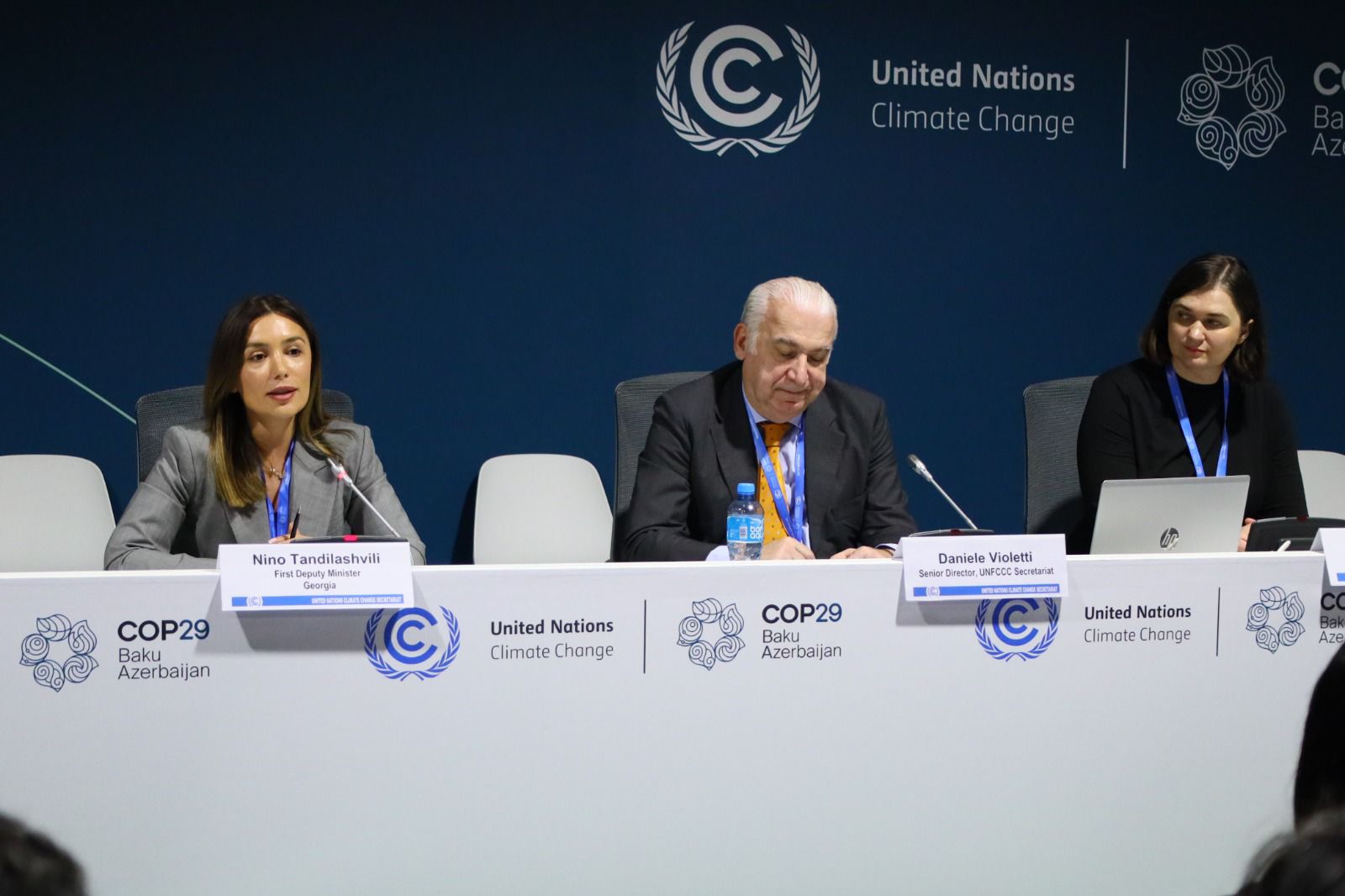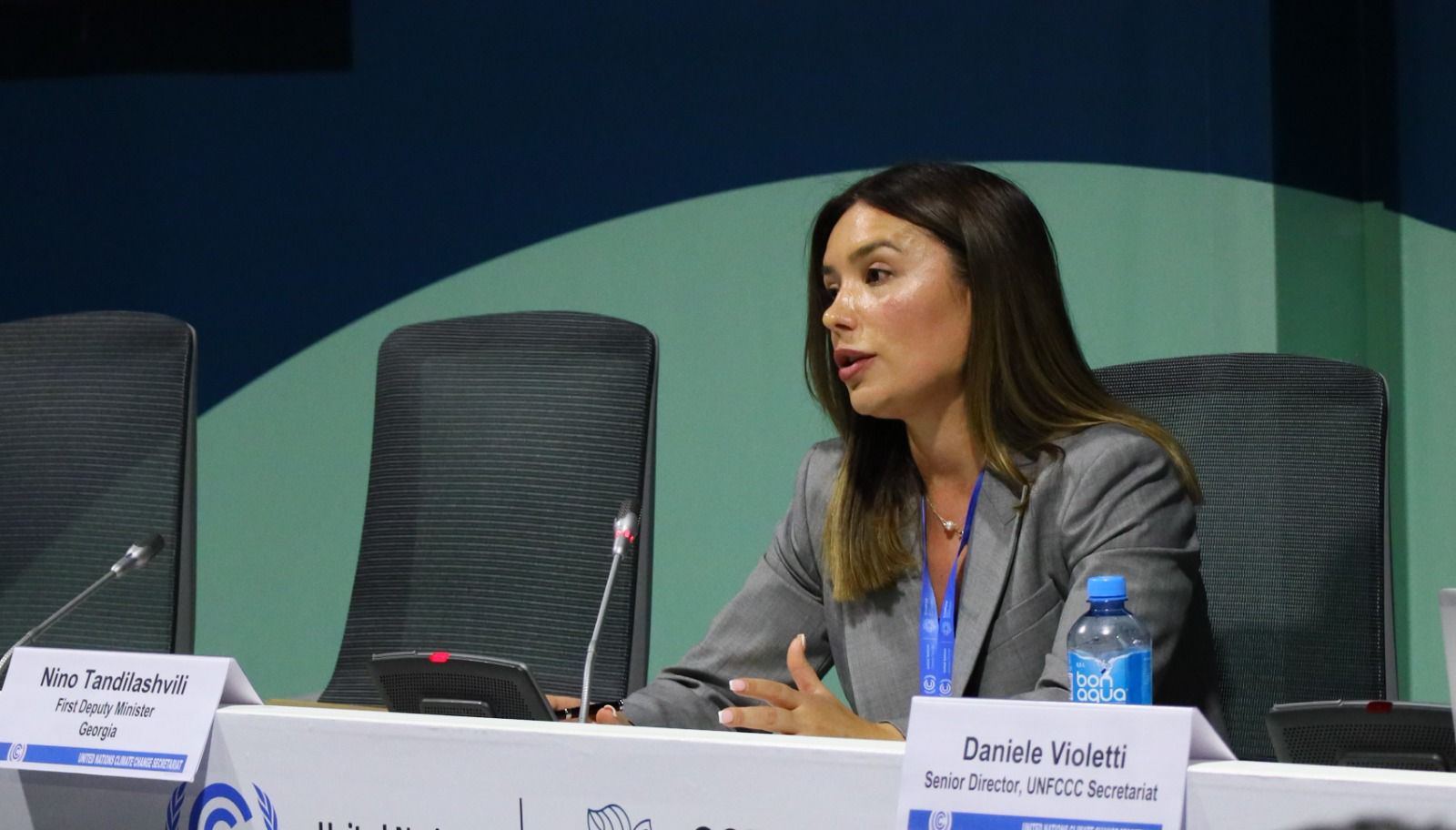News
The First Deputy Minister of Environmental Protection and Agriculture, Nino Tandilashvili, delivered remarks at the high-level conference “Supporting the Adoption of Climate-Smart Agriculture” in Baku.
Mrs. Nino Tandilashvili, the First Deputy Minister of Environmental Protection and Agriculture of Georgia, delivered remarks at the high-level conference “Supporting the Adoption of Climate-Smart Agriculture,” held within the framework of the ongoing UN Climate Change Conference (COP 29) in Baku, Azerbaijan.
Mrs. Nino Tandilashvili emphasized the importance of establishing high-tech agri-food systems, which are essential in effectively managing climate change-related risks.
According to the Deputy Minister, deploying climate-smart technology in the agricultural sector is a top priority for Georgia's Ministry of Environmental Protection and Agriculture.
The Deputy Minister noted that the Ministry's Rural Development Agency actively promotes green technologies in agriculture. A prime example is the Innovative Technologies Grant Program, which aims to enhance farmers' capacities and skills by supporting the adoption of modern, sustainable practices.
Mrs. Tandilashvili also underscored the government's commitment to strengthening irrigation systems and promoting sustainable water usage. Over the past two years, Georgia has mobilized an unprecedented $300 million in financial resources, with support from the World Bank and the Asian Development Bank, to develop modern irrigation systems. These efforts are vital for improving climate resilience and boosting agricultural productivity.
“ Georgia is dedicated to adjusting its agri-food systems to address the threats of climate change. Moreover, our country is developing multi-hazard early warning systems to protect farmers from climate-related threats, specifically floods, mudslides, etc. This system also incorporates drought predictions, thus providing farmers with relevant information. As I have mentioned, the Georgian government supports the adoption /dissemination of modern technologies in agri-food systems through various initiatives. We acknowledge that we still have much to accomplish and are ready to enhance our efforts,” said the First Deputy Minister
The conference, organized by the Food and Agriculture Organization of the United Nations (FAO) and the Secretariat of the United Nations Framework Convention on Climate Change (UNFCCC), brought together high-ranking delegates from nearly all countries worldwide to discuss strategies for adopting climate-smart agriculture.

